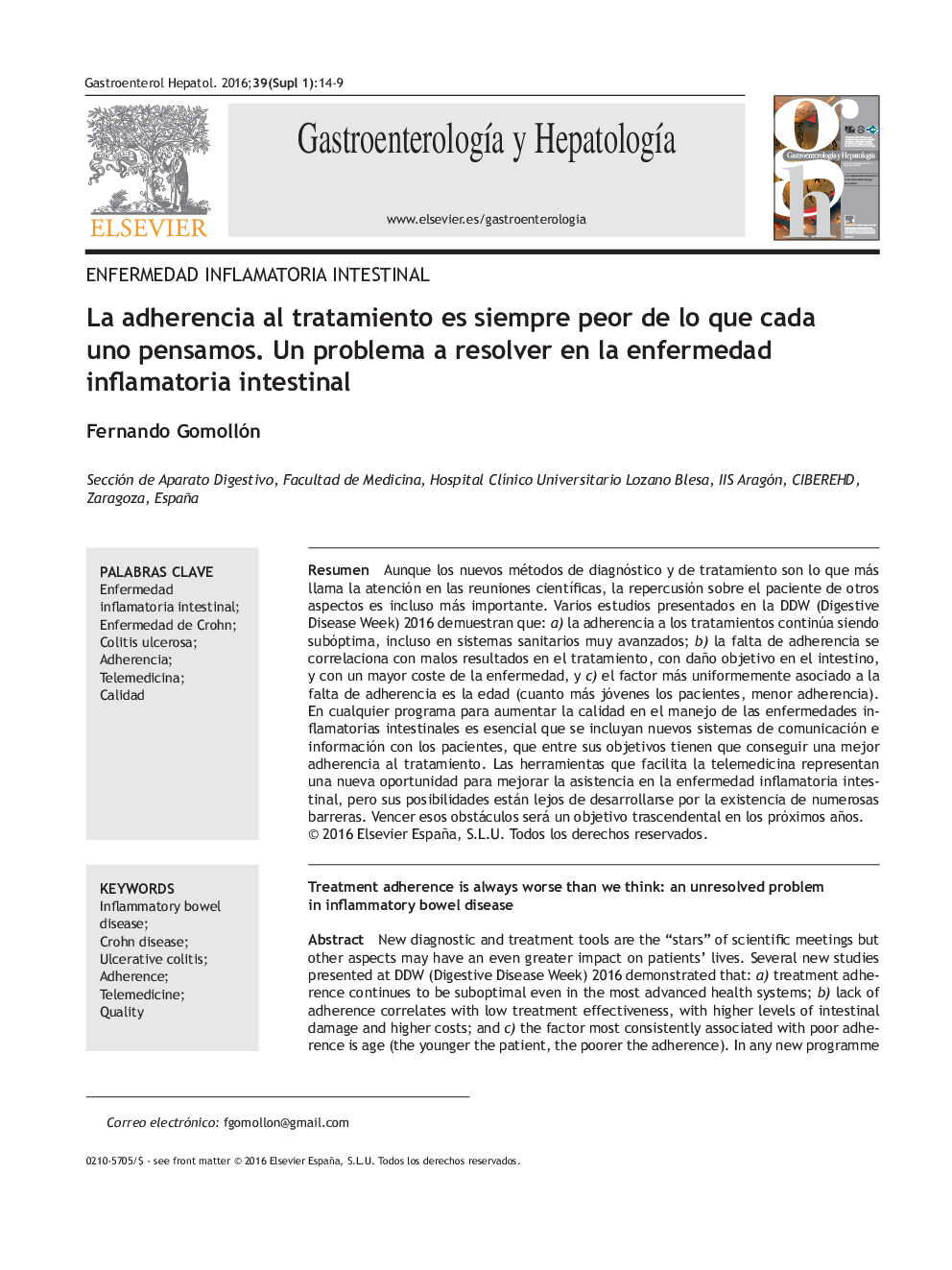| Article ID | Journal | Published Year | Pages | File Type |
|---|---|---|---|---|
| 5657950 | Gastroenterología y Hepatología | 2016 | 6 Pages |
Abstract
New diagnostic and treatment tools are the “stars” of scientific meetings but other aspects may have an even greater impact on patients' lives. Several new studies presented at DDW (Digestive Disease Week) 2016 demonstrated that: a) treatment adherence continues to be suboptimal even in the most advanced health systems; b) lack of adherence correlates with low treatment effectiveness, with higher levels of intestinal damage and higher costs; and c) the factor most consistently associated with poor adherence is age (the younger the patient, the poorer the adherence). In any new programme aiming to enhance the quality of inflammatory bowel disease management, a key element should be the inclusion of new patient information and communication systems to increase treatment adherence. The new tools available in the telemedicine era provide an opportunity to improve the care of inflammatory bowel disease, but their success is limited by multiple problems. Overcoming these barriers should be our key goal in the next few years.
Keywords
Related Topics
Health Sciences
Medicine and Dentistry
Gastroenterology
Authors
Fernando Gomollón,
